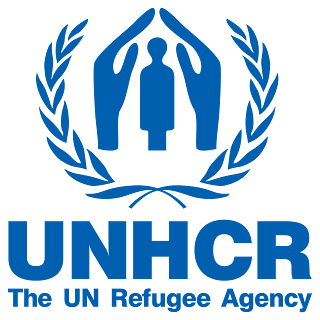Nairobi no longer safe for Gay men
 |
| Ugandan artist Vincent Kyabayinze portrays the risk of a rendezvous with an unknown person. (Artwork courtesy of Vincent Kyabayinze) |
By Denis Nzioka
Gay dating apps, which have grown immensely popular within the community of gay men in Nairobi, Kenya, are currently the riskiest method for arranging a rendezvous. Cases of victims who are kidnapped, beaten, and robbed continually demonstrate that those apps are a cancer that refuses to heal. Some of these cases involve sexual assault. Some end in rape.
The advent of gay dating apps such as Grindr, Hornet, and Manjam was hailed as a success story – gay men could, from the comfort of their phones, seek partners, relationships, meet, and even arrange for sexual activity with other gay men. Gone are the days when gay men had to scout bars or corners on the streets or bushes to engage in romance, foreplay, or actual sex. It was a welcome change – so welcome that Tinder, Badoo and other similar apps were developed for straight people.
 |
| Gay men can choose among many dating apps, but activists warn that people who use these apps carelessly risk being assaulted, robbed or raped. |
It was in early 2006 when the first cases of blackmail were reported in Nairobi. A victim would often meet someone on these apps, and then go meet the person at their house. Such scenarios escalated into people forcing themselves in the house, assaulting the person they had arranged to meet, and demanding money. The victims were then forced to hand over money or call people on their phone’s address book and demand that they send money. Electronic payments were convenient for the blackmailers, who would then withdraw the cash either from an M-pesa mobile money agent or through an online bank transfer. In two cases that I am aware of, the victim and his captors went to the bank so the victim could make an over-the-counter withdrawal.
In a crescendo of troubles, between 2011 and 2015 more and more victims came out to share their stories. Most had hidden this out of fear or shame. The stories were harrowing – beatings, threats, being stripped naked and photographed, used condoms being placed on you as the captors took photos, and in some cases being raped by one or several captors.
 |
| Kenya's location in East Africa |
Activists grew concerned, but were stuck in a box. How do you report a crime when it was done, essentially, when another crime was being done? How do you go to a police station to report that someone has been assaulted, or raped, in another man’s house, whom he met online, ostensibly for sex? In addition, victims were afraid of making police statements as most were not known to be gay and did not want the cases to go forward out of fear of being outed. We were in a fix.
Of course, creatively, we generated information, and mapped out areas, and showed the various ways in which to spot or confirm whom you had met at the other end of the app. This worked, as far as it went. More gay men became more cautious over whom they met. Others demanded more information from people they met online. Others preferred to meet dates in public spaces. Good, but not enough.
The cases of abuse dropped significantly. I know this because I led efforts to unmask and expose this scam. It even involved, in some cases, corrupt police officers who were used to intimidate the victims if they did not pay up. So extraordinary were these efforts, that Grindr nowadays has an occasional pop-up window once you log in on how to be safe when using the app – something that they piloted only in Kenya.
But still, one or two cases reached my desk with same modus operandi: online hook-up, meeting in strangers’ houses, and then other people entering to find you in the middle of sex, extortion, threats, or worse. Most of the victims, even with the information available out there, fell into the trap that takes advantage of people’s need for sexual intimacy and physical expression with another individual. As they say, the thirst is real.
Priests, lawyers, doctors, husbands, students, touts, tourists and, in one case, a prominent politician have all fallen victim to this extortion that is compounded by the fact that in Kenya same-sex relations are punishable by law. It has been argued that the blackmailers are driven by poverty or are just criminals out to make a quick buck. Partly true. The scams can be attributed to various factors, including the criminalisation of homosexuality and the emergence of new, easy-to-install technology that makes it easier to share information online or meet people.
Gay men in Kenya live in a criminalized society. It is worse when an innovative way for overcoming obstacles to the pursuit of happiness, a relationship or just a lay has become the very thing that further puts us at risk.
Nairobi is not safe for gay men. It never has been. My advice to all gay men out there: It’s better to be less horny, and more cautious.
Denis Nzioka is a gay rights activist based in Nairobi, Kenya. Engage with him via @DenisNzioka.
Follow Us:



Comments
Post a Comment